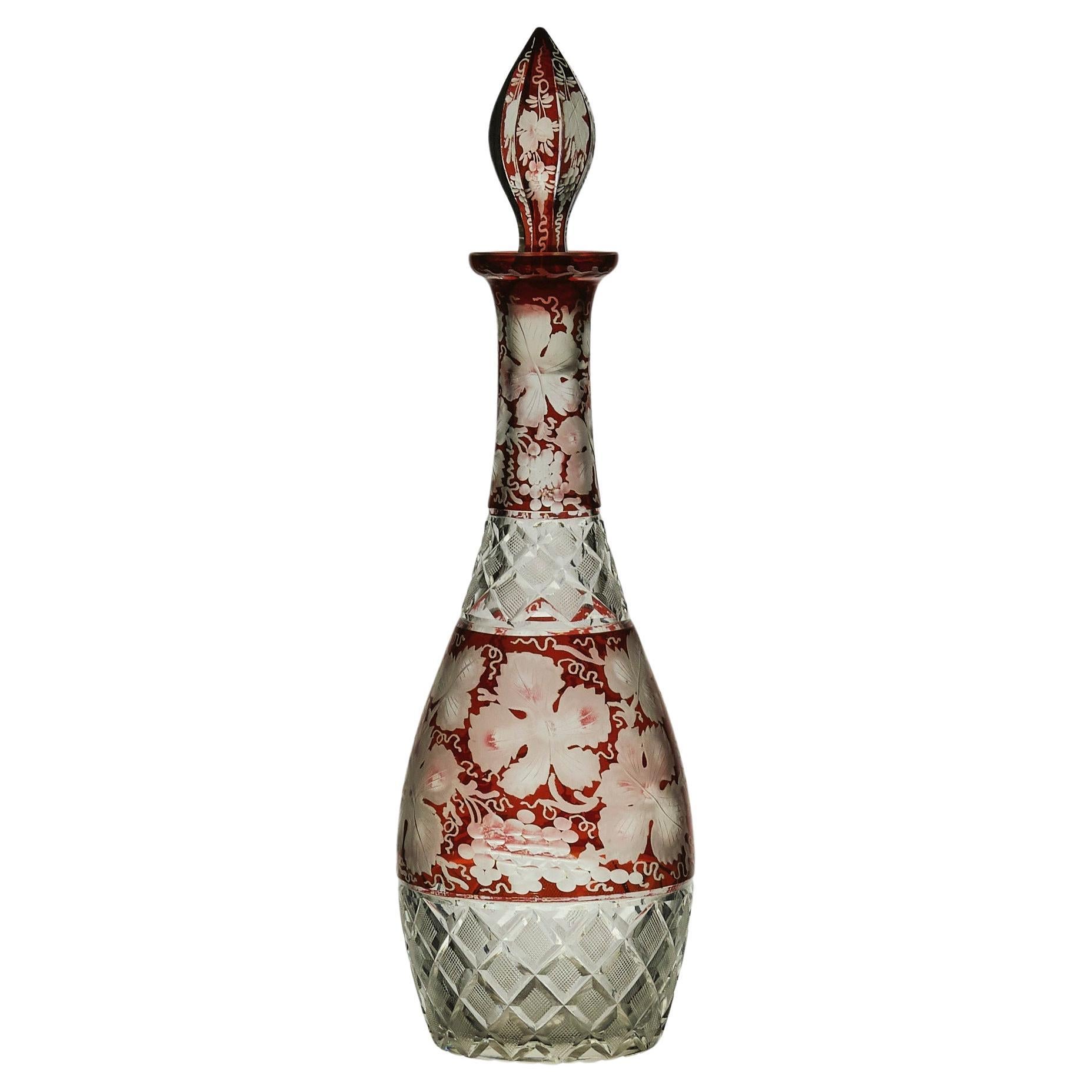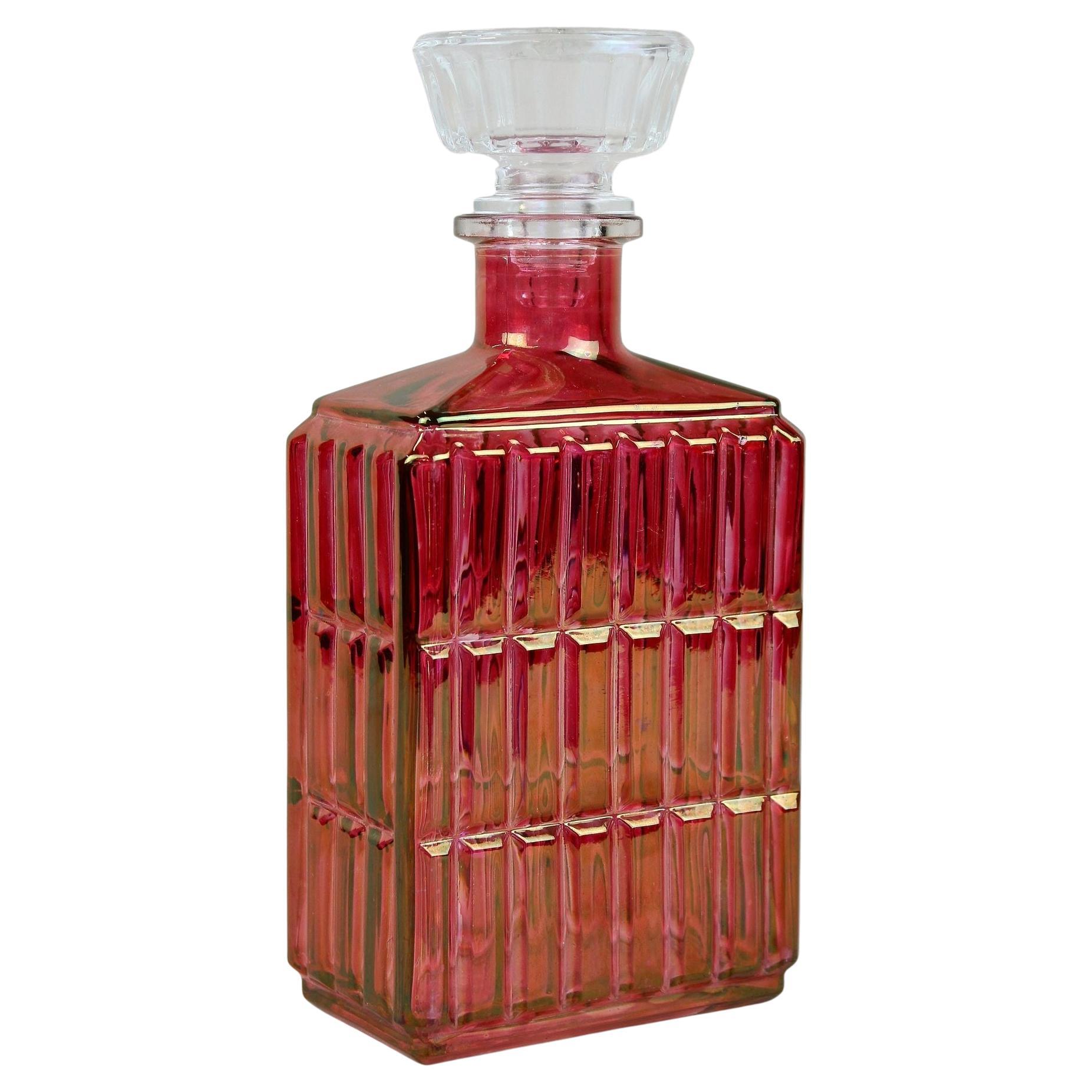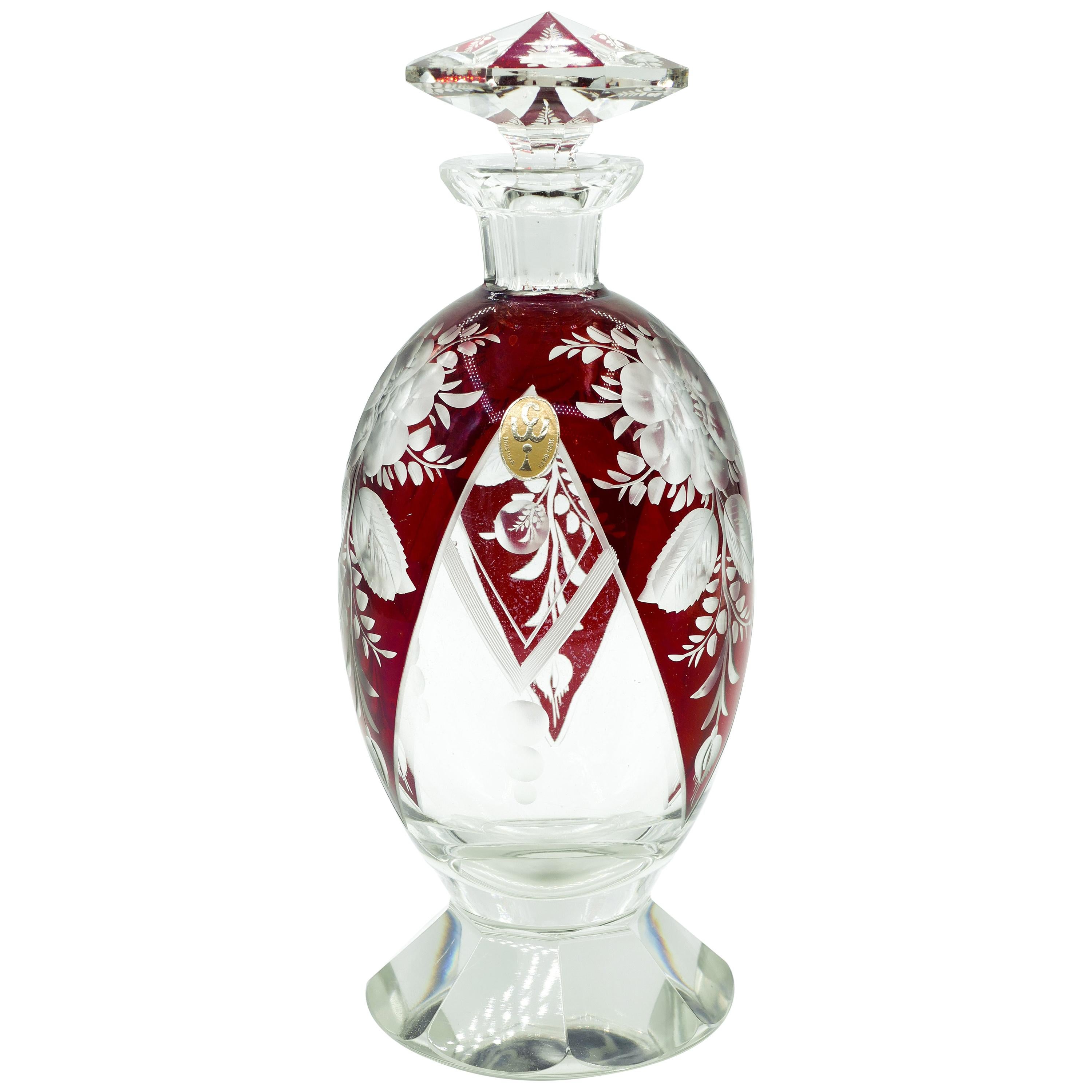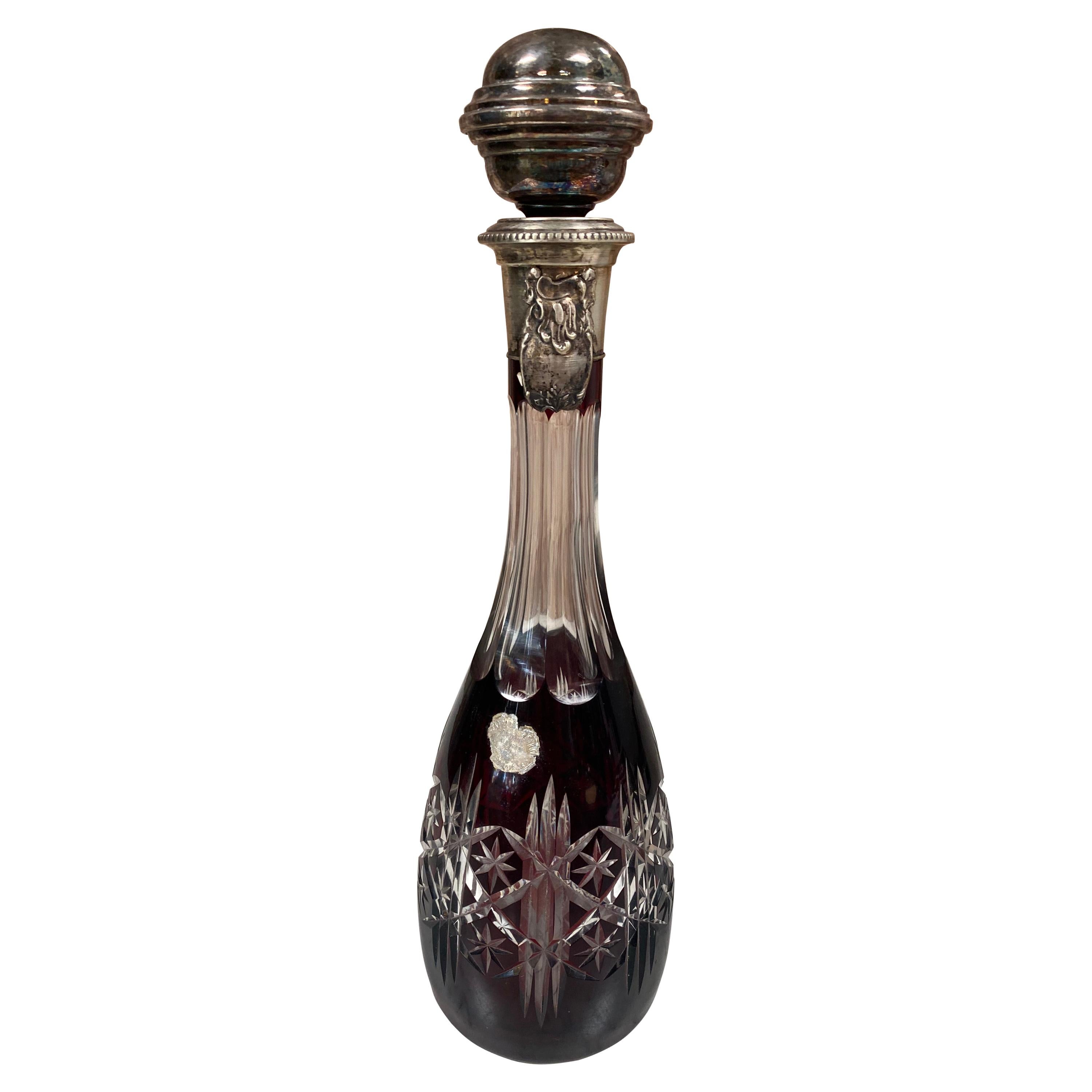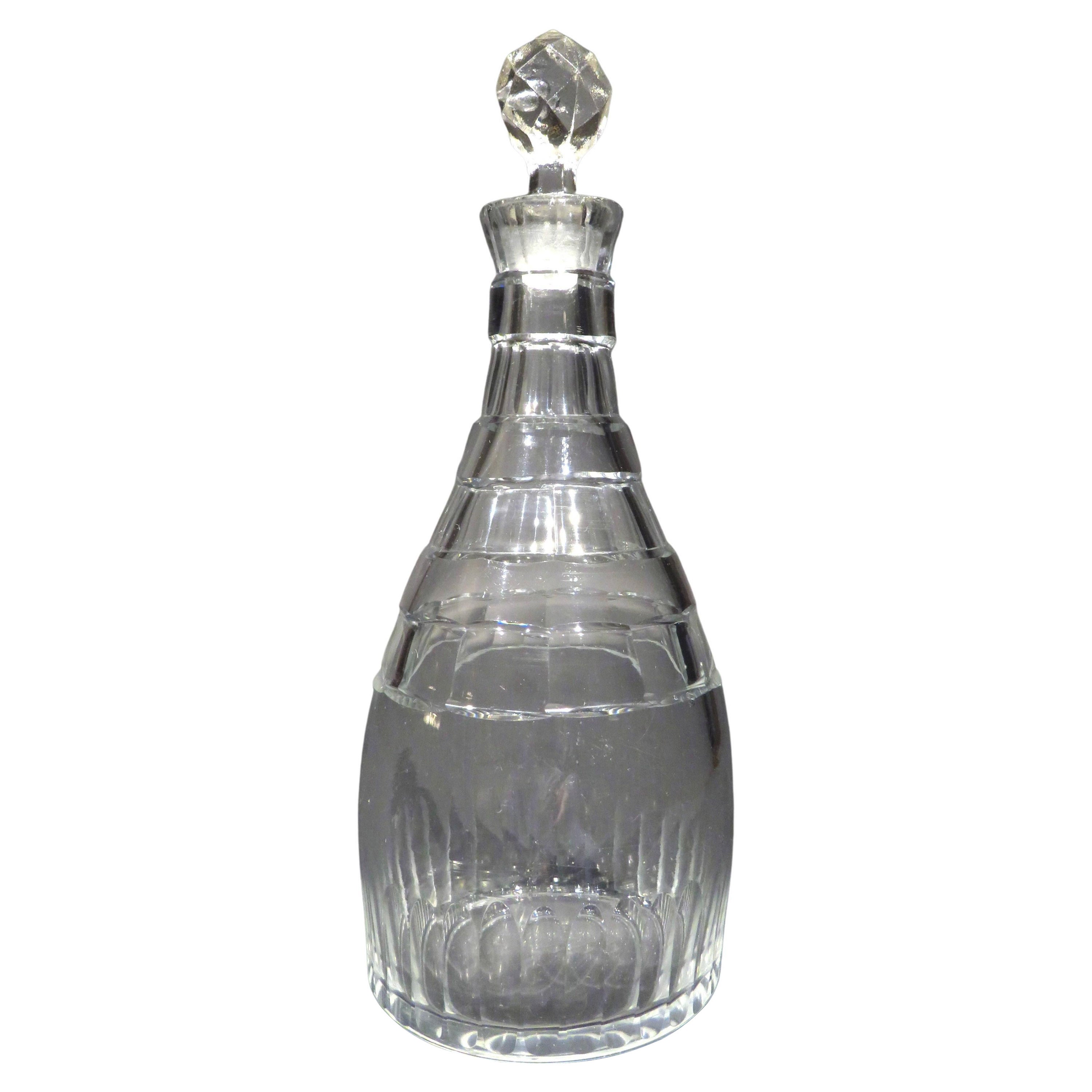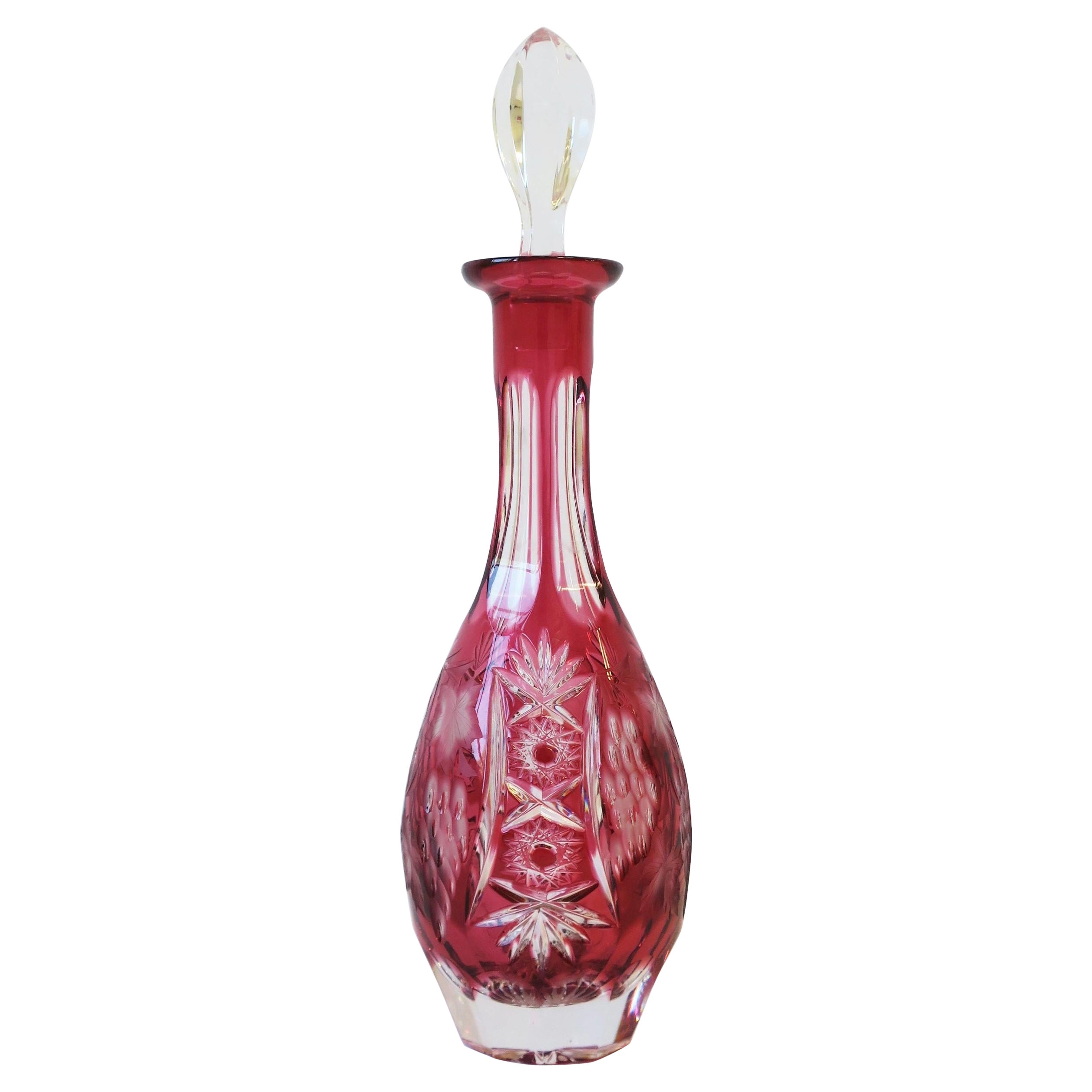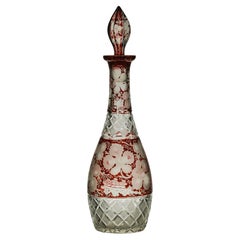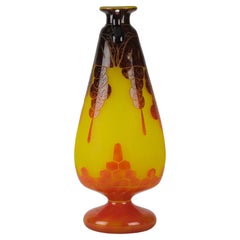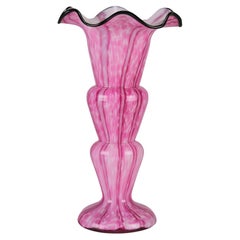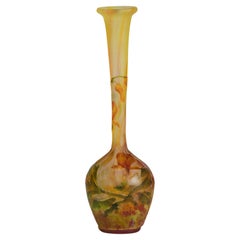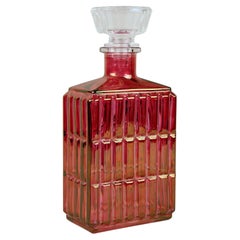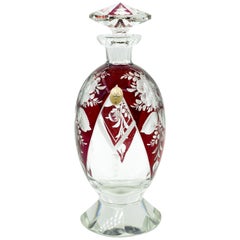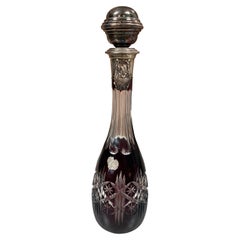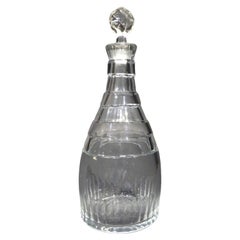Items Similar to 20th Century Italian Glass "Decanter" by Murano Glass
Want more images or videos?
Request additional images or videos from the seller
1 of 10
20th Century Italian Glass "Decanter" by Murano Glass
$650.95
£475
€554.16
CA$891.64
A$991.70
CHF 517.83
MX$12,067.89
NOK 6,613.52
SEK 6,202.32
DKK 4,135.94
Shipping
Retrieving quote...The 1stDibs Promise:
Authenticity Guarantee,
Money-Back Guarantee,
24-Hour Cancellation
About the Item
An attractive glass decanter cased in red and engraved with decorative motifs with star cut base and matching stopper
ADDITIONAL INFORMATION
Height: 37 cm
Condition: Excellent Original Condition
Circa: 1970
Materials: Hand Blown Coloured Glass
SKU: 6692
ABOUT
Vittorio Ferro, Italian 1932 ~ 2012
Vittorio Ferro, a distinguished Murano glass artist, was born in 1932 in Murano, Italy. Renowned for his innovative and masterful glass creations, Ferro began his artistic journey at a young age, apprenticing under the guidance of Murano's skilled artisans. His early exposure to the traditional Venetian glassblowing techniques laid the foundation for his groundbreaking work in the field.
Ferro's artistic evolution unfolded through decades of experimentation with form, color, and texture. His signature style seamlessly blends traditional craftsmanship with contemporary design, earning him international acclaim. His glass sculptures, chandeliers, and intricate glassware reflect a harmonious synthesis of tradition and modernity. Beyond his artistic prowess, Ferro played a pivotal role in preserving and advancing the Murano glassmaking heritage.
Throughout his illustrious career, Vittorio Ferro's works have been exhibited in prestigious galleries and museums worldwide, solidifying his legacy as a visionary Murano artist who pushed the boundaries of traditional glass artistry.
Murano Glass
The history of Murano glass is a tale of artistic ingenuity and innovation, rooted in the small Venetian island of Murano, Italy. Dating back to the late 13th century, the glassmaking industry in Murano evolved as a strategic move to protect the city of Venice from the risk of fires caused by glass furnaces. Murano's glass artisans were required to relocate to the island, where they refined their craft in isolation.
Over the centuries, Murano glassmakers became masters of their trade, pioneering techniques such as crystalline glass, enameling, and millefiori. The Renaissance period witnessed Murano glass achieving unprecedented levels of sophistication, with intricate designs and vibrant colors becoming hallmarks of the art form. Murano's glass industry continued to flourish through the Baroque and Rococo eras, and its reputation for producing exquisite chandeliers, mirrors, and decorative glassware spread across Europe.
Despite economic challenges and competition, Murano glass has endured, remaining a symbol of Italian craftsmanship and artistic excellence. Today, Murano glass continues to captivate collectors and enthusiasts worldwide, honoring a legacy that spans over seven centuries.
Murrine Technique
Murrino glass has very ancient origins, the first works date back to 3,000-2,000 BC by Syrian, Egyptian and Roman glassmakers. The term “Murrino” was used to identify all the mosaic glass vases and bowls that the Romans made using cane sections that presented inside them, along their entire length, abstract or figurative designs such as faces, flowers and animals. These vases were made of murrha, a material characterized by the presence of Fluorite which gives the objects a particular smell, perhaps due to the resins used as a binder during the process or more likely because they were used to contain perfumes.
During the Middle Ages the murrino glass technique was lost, but was taken up again leter towards the end of the XIX century at the Salviati glassworks by Vincenzo Moretti. Since then the term murrino was remained and is used to identify both the individual sections of the cane and the object obtained from their composition.
To form a simple murrina with overlapping concentric layers, it is necessary in the furncace the presence of crucibles with soft-colored glass of different colors. A worker then takes a small amount of glass from the first crucible on the tip of an iron rod, passing immediately afterwards to cover it with other glass taken from a second crucible. This proceeds by superimposing several layers of different colors: these layers of glass will form all together a cylinder weighing five, six kilograms.
Once the cylinder has been made regular by rolling it over a thick iron or bronze plate, a second iron rod is applied to the free part. Everything then passes into the hands of two other workers, the “tiracanna”, who will stretch the mash to bring it to the programmed diameter. In this case you will get a murrina with concentric circles designs. If the soft glass mash is inserted into a mold with vertical ribs in the shape of a flower, star or heart, you will have a murrina with a floral, star or heart shape.
The obtained sticks (or canes) are used to produce the “mosaic” (or “millefiori”) pearls, plates, bowls or pendants. To make pearls it is necessary to cover the light layer of molten glass wrapped around the iron rod (core) with many slices of these rods and compact them with simple tools while giving the desired shape at the same time.
The use of the copper mold, which can have the most different shape and dimensions, allows to obtain objects that are all perfectly equal to each other, which is impossible without resorting to this system.
Still the murrine are produced by Murano glassmakers according to ancient techniques handed down from generation to generation.
Even the masters of Murano Design glassware follow this ancient tradition by inserting murrinas in their creations.
- Creator:Vittorio Ferro (Artist)
- Dimensions:Height: 14.57 in (37 cm)Width: 4.73 in (12 cm)Depth: 4.73 in (12 cm)
- Style:Art Deco (In the Style Of)
- Materials and Techniques:Glass,Molded
- Place of Origin:
- Period:
- Date of Manufacture:1970
- Condition:Wear consistent with age and use.
- Seller Location:London, GB
- Reference Number:Seller: 66921stDibs: LU3216343587012
About the Seller
5.0
Gold Seller
Premium sellers maintaining a 4.3+ rating and 24-hour response times
Established in 1936
1stDibs seller since 2017
80 sales on 1stDibs
Typical response time: 1 hour
- ShippingRetrieving quote...Shipping from: London, United Kingdom
- Return Policy
Authenticity Guarantee
In the unlikely event there’s an issue with an item’s authenticity, contact us within 1 year for a full refund. DetailsMoney-Back Guarantee
If your item is not as described, is damaged in transit, or does not arrive, contact us within 7 days for a full refund. Details24-Hour Cancellation
You have a 24-hour grace period in which to reconsider your purchase, with no questions asked.Vetted Professional Sellers
Our world-class sellers must adhere to strict standards for service and quality, maintaining the integrity of our listings.Price-Match Guarantee
If you find that a seller listed the same item for a lower price elsewhere, we’ll match it.Trusted Global Delivery
Our best-in-class carrier network provides specialized shipping options worldwide, including custom delivery.More From This Seller
View AllMid 20th Century Bohemian Glass "Wine Decanter" Circa: 1940
Located in London, GB
An attractive mid 20th Century Bohemian glass decanter cased in a deep red and engraved with decorative motifs with star cut base and matching stopper
ADDITIONAL INFORMATION
Height:...
Category
Mid-20th Century Czech Art Deco Vases
Materials
Glass
Early 20th Century Art Deco Cameo Glass "Decor Fleur Vase" by Le Verre Français
By Le Verre Francais
Located in London, GB
A striking early 20th Century Art Deco glass vase the top etched with deep burgundy hanging flowers and a warm orange honey comb pattern rising from the bottom against a vibrant yell...
Category
Early 20th Century French Art Deco Vases
Materials
Glass
Early 20th Century Bohemian Blown Glass "Trefoil Vase" by Franz Welz
Located in London, GB
An eye catching pink and white 'vertical stripes' blown glass vase with inner white casing, and applied black glass undulating terfoil rim.
ADDITIONAL INFORMATION
Height: 24 cm
Diameter: 13 cm
Condition: Excellent Original Condition
Circa: 1930
Materials: Coloured Glass
SKU: 6523
ABOUT
Franz Welz
The Franz Welz glass...
Category
Early 20th Century Czech Art Deco Vases
Materials
Art Glass, Blown Glass
Early 20th Century Art Nouveau Cameo Glass "Montbrecia Vase" by Daum Frères
By Daum
Located in London, GB
"Montbrecia Vase" by Daum Frères
An attractive early 20th Century cabinet cameo glass vase of solifleur form etched and enamelled with a floral landscape. The design heightened with...
Category
Early 20th Century French Art Nouveau Vases
Materials
Glass
Early 20th Century Glass Vase entitled "Décor Orchidée" by Le Verre Français
Located in London, GB
A wonderful early 20th Century Art Deco glass vase etched with vibrant red orchids against a deep orange background interspersed with deep burgundy reefs exhibiting excellent colour ...
Category
Early 20th Century French Art Nouveau Vases
Materials
Glass
American Glass Art Nouveau Silvered Vase
Located in London, GB
An excellent early 20th century American Glass Art Nouveau silvered vase. The surface of the vase has an iridescent green casing highlighting the central decorative flower made out of applied silver.
ADDITIONAL INFORMATION
Height: 17 cm
Depth: 9 cm
Width: 9 cm
Condition: excellent condition
Circa: 1910
Materials: Art glass and silver
SKU: 6513
ABOUT
American glass Art Nouveau silvered vase
Art Nouveau Glassware...
Category
Mid-20th Century American Vases
Materials
Art Glass, Blown Glass
You May Also Like
20th Century Art Deco Glass Decanter or Liquor Bottle, Austria ca. 1930
Located in Lichtenberg, AT
Beautiful 20th century Glass Decanter or Liquor Bottle from the Art Deco period in Austria around 1930. An absolute artfully crafted bottle made of red colored glass. This very decorative piece of Austrian glass art impresses with a timeless, modern design additionally adorned by this fantastic shimmering, special iridescent golden surface. Depending on the perspective and the angle of light incidence the exceptional surface changes its colors from red to a lovely shining gold with blue/ green and different copper tones. The amazing looking, removable large glass cap completes the extraordinary look of this 20th century Art Deco glass decanter or liquor bottle. This item comes in great original condition and shows a Mod. No. - unfortunately unknown to us - at the bottom.
PLEASE NOTE: in case you are interested in a pair of this gorgeous Art Deco glass bottle, don´t forget to check our second matching Art...
Category
Mid-20th Century Austrian Art Deco Bottles
Materials
Glass
Vintage Bohemian Glass Carafe, Second Half 20th Century
Located in Roma, IT
Bohemian glass carafe is a wonderful colored glass piece realized in the second half of 20th century.
With round base, angularly ground, ovoid...
Category
Late 20th Century Czech Serving Pieces
Materials
Glass
Vintage Beautiful Italian Mid Century Glass Bottle, 1970s
Located in Los Angeles, CA
Beautiful tall glass bottle vintage made in Italy, 1970s.
Category
Vintage 1970s Italian Mid-Century Modern Bottles
Materials
Silver
Very Good Art Deco Cut Glass Decanter, England circa 1910
Located in Ottawa, Ontario
A very elegant & striking Art Deco period cut glass decanter of conical form, showing a base decorated with basal cut flutes rising to tapering shoulders with three tiers of broad faceted bands...
Category
Early 20th Century English Art Deco Glass
Materials
Cut Glass
German Crystal Liquor Decanter Barware
By Val Saint Lambert
Located in New York, NY
A beautiful and substantial red raspberry dark pink cut-to-clear crystal spirit liquor decanter with crystal stopper, in the style of luxury maker Val St. Lambert, circa mid to mid to late-20th century, West Germany, Europe. A beautiful piece for any bar, bar cart, or entertaining area, etc. Dimensions: 3.13" Diameter x 12.5" Height.
Small vase shown also available, search 1stDibs ref. #: LU1314225517552 (SOLD)
Rosenthal crystal glass...
Category
Mid-20th Century German Bohemian Barware
Materials
Crystal
$780 Sale Price
20% Off
Mid 20th Century Murano Glass Decanter
By Murano Glass Sommerso
Located in Los Angeles, CA
Murano glass decanter composed of a purple hued body, accented with a gold speckled glass bass, figural lion head to the center. Great as a vase...
Category
Mid-20th Century Italian Mid-Century Modern Bottles
Materials
Murano Glass
More Ways To Browse
20th Century Italian Murano Glass Vases
Small Glass Bottles
Italian Cased Glass Vase
Italian Glassware
Glass Decanter Bottle
Clear Decanter
Murano Glass Ferro
Italian Decanter
Ferro Murano
Murano Glass Heart
Italian Glass Decanter
Glass Vases With Iron
Vase Glass Applied Flowers
Made In Italy Perfume
Italian Face Vase
Wrapped Bottle
Art Glass Cylinder Vase
Murano Glass Mosaic
